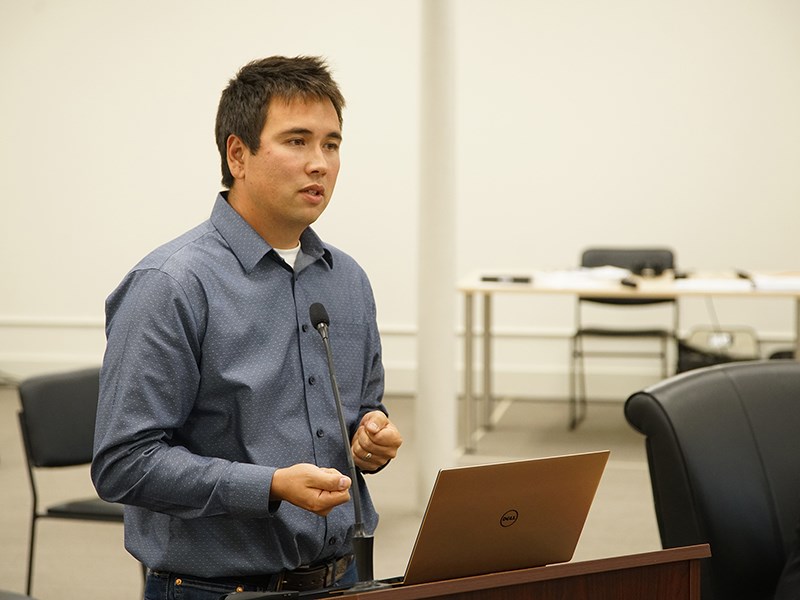City of Powell River councillors have given first three readings to seven permissive tax exemption bylaws, which will give tax relief to qualifying organizations in 2021 if council gives final adoption.
At the October 15 council meeting, mayor Dave Formosa said these will allow non-profit organizations to not pay municipal taxes because they meet specific criteria.
The permissive tax exemptions were introduced to council at the October 13 committee of the whole meeting. Speaking to the committee of the whole, chief financial officer Adam Langenmaier distributed a list of permissive tax exemptions, totalling $377,941.18 for the 2021 tax year.
Langenmaier said these are not granted automatically and are completely up to city council’s discretion. He said the recommendations were before council based on the city policy.
“This year we have received 70 grant applications and the number has grown slightly from the prior year, but they are all very similar-type applicants,” said Langenmaier. “There are seven new ones over the prior year.”
Langenmaier said looking at total exemptions based on the total tax base, it’s just over the two per cent mark, up about a tenth of a per cent over the prior year.
Permissive tax exemptions do require public notification, said Langenmaier, and if council gives first three readings, notification would be given in the next two newspaper publications.
“At this point it is up to council to give direction of what it wants to see and do,” said Langenmaier.
Councillor George Doubt said this is not the first time council has looked at the permissive tax exemptions. He said it was reviewed at the August finance committee meeting. Council referred the matter for advice from the newly formed community finance advisory committee, said Doubt. The committee met through September and discussed its ideas through three meetings.
“They looked at the report we had from August and had a number of suggestions for different ways to modify the policy,” said Doubt. “One of the things the committee discussed in detail was a financial needs test.”
Doubt said committee members made a determination, largely because they believe the public needs to have some time, and council needs to have time to think about various choices that were in the original report of modifying the policy.
“To cut to the chase, the committee made two recommendations to council,” said Doubt. “The first was that no immediate changes be made to the policy at this time. The next one was that they recommend to council next year to consider a change to the council policy to include a cap. Their suggestion was to not make any changes this year and institute a cap over the next year.”
Doubt said he supported the recommendation, and that everyone should be thinking about changes to this policy next year, because the permissive tax exemptions are a significant amount of money.
“When you look at it in the big scheme of things, it has the opportunity to affect our budget significantly, and as the CFO has pointed out before, it’s one of the few things we can actually considerably influence and change by a decision that council makes.”
Councillor Maggie Hathaway asked that when the committee talks about putting a cap on, how it would be established and who would get left out?
Doubt said the committee did not go that far as to make a suggestion of how to apply that.
Hathaway said permissive tax exemptions have been a topic of discussion since she got on council. She said she likes the idea of showing a financial need.
“There are lots of nonprofits out there that are doing well but they don’t really need it,” said Hathaway. “I would like to see us taking a look at it over the next year.”
Councillor Jim Palm said he’d be interested to know if the community finance advisory committee researched what was being done in other communities to come up with a cap. Doubt said the committee reached out and looked at how they do it, and at advice from a number of sources.
“The committee was diligent in what they were looking for,” said Doubt.
Langenmaier said in his report to the finance committee, he had looked at Port Alberni and Victoria, which have caps on permissive tax exemptions.
Doubt said some of the ones he remembers have a 1.5 per cent cap, and some have a 2.5 per cent cap.
“It depends a lot on the makeup of the community,” said Doubt. “We are in the ballpark but the $300,000 and some is something council can control. It’s pretty hard to come up with $100,000 of tax money from anywhere else.”



